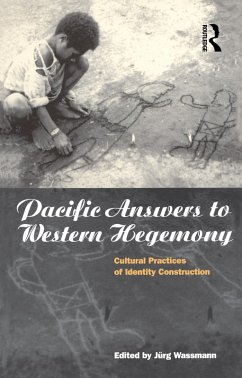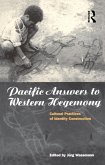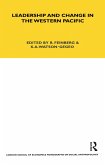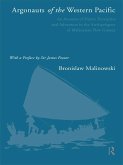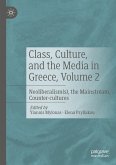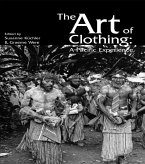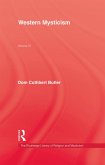Pacific Answers to Western Hegemony (eBook, PDF)
Cultural Practices of Identity Construction
Redaktion: Wassmann, Jürg
40,95 €
40,95 €
inkl. MwSt.
Sofort per Download lieferbar

20 °P sammeln
40,95 €
Als Download kaufen

40,95 €
inkl. MwSt.
Sofort per Download lieferbar

20 °P sammeln
Jetzt verschenken
Alle Infos zum eBook verschenken
40,95 €
inkl. MwSt.
Sofort per Download lieferbar
Alle Infos zum eBook verschenken

20 °P sammeln
Pacific Answers to Western Hegemony (eBook, PDF)
Cultural Practices of Identity Construction
Redaktion: Wassmann, Jürg
- Format: PDF
- Merkliste
- Auf die Merkliste
- Bewerten Bewerten
- Teilen
- Produkt teilen
- Produkterinnerung
- Produkterinnerung

Bitte loggen Sie sich zunächst in Ihr Kundenkonto ein oder registrieren Sie sich bei
bücher.de, um das eBook-Abo tolino select nutzen zu können.
Hier können Sie sich einloggen
Hier können Sie sich einloggen
Sie sind bereits eingeloggt. Klicken Sie auf 2. tolino select Abo, um fortzufahren.

Bitte loggen Sie sich zunächst in Ihr Kundenkonto ein oder registrieren Sie sich bei bücher.de, um das eBook-Abo tolino select nutzen zu können.
The destruction of local identity through the relentless encroachment of a 'McDonald-ized' cultural imperialism is a global phenomenon.
- Geräte: PC
- mit Kopierschutz
- eBook Hilfe
Andere Kunden interessierten sich auch für
![Pacific Answers to Western Hegemony (eBook, ePUB) Pacific Answers to Western Hegemony (eBook, ePUB)]() Pacific Answers to Western Hegemony (eBook, ePUB)40,95 €
Pacific Answers to Western Hegemony (eBook, ePUB)40,95 €![Argonauts of the Western Pacific (eBook, PDF) Argonauts of the Western Pacific (eBook, PDF)]() Bronislaw MalinowskiArgonauts of the Western Pacific (eBook, PDF)21,95 €
Bronislaw MalinowskiArgonauts of the Western Pacific (eBook, PDF)21,95 €![Leadership and Change in the Western Pacific (eBook, PDF) Leadership and Change in the Western Pacific (eBook, PDF)]() Leadership and Change in the Western Pacific (eBook, PDF)42,95 €
Leadership and Change in the Western Pacific (eBook, PDF)42,95 €![Argonauts of the Western Pacific (eBook, PDF) Argonauts of the Western Pacific (eBook, PDF)]() Bronislaw MalinowskiArgonauts of the Western Pacific (eBook, PDF)83,95 €
Bronislaw MalinowskiArgonauts of the Western Pacific (eBook, PDF)83,95 €![Class, Culture, and the Media in Greece, Volume 2 (eBook, PDF) Class, Culture, and the Media in Greece, Volume 2 (eBook, PDF)]() Class, Culture, and the Media in Greece, Volume 2 (eBook, PDF)105,95 €
Class, Culture, and the Media in Greece, Volume 2 (eBook, PDF)105,95 €![The Art of Clothing: A Pacific Experience (eBook, PDF) The Art of Clothing: A Pacific Experience (eBook, PDF)]() The Art of Clothing: A Pacific Experience (eBook, PDF)64,95 €
The Art of Clothing: A Pacific Experience (eBook, PDF)64,95 €![Western Mysticism (eBook, PDF) Western Mysticism (eBook, PDF)]() ButlerWestern Mysticism (eBook, PDF)45,95 €
ButlerWestern Mysticism (eBook, PDF)45,95 €-
-
-
The destruction of local identity through the relentless encroachment of a 'McDonald-ized' cultural imperialism is a global phenomenon.
Dieser Download kann aus rechtlichen Gründen nur mit Rechnungsadresse in A, B, BG, CY, CZ, D, DK, EW, E, FIN, F, GR, HR, H, IRL, I, LT, L, LR, M, NL, PL, P, R, S, SLO, SK ausgeliefert werden.
Produktdetails
- Produktdetails
- Verlag: Taylor & Francis eBooks
- Seitenzahl: 458
- Erscheinungstermin: 2. September 2020
- Englisch
- ISBN-13: 9781000324730
- Artikelnr.: 60086356
- Verlag: Taylor & Francis eBooks
- Seitenzahl: 458
- Erscheinungstermin: 2. September 2020
- Englisch
- ISBN-13: 9781000324730
- Artikelnr.: 60086356
- Herstellerkennzeichnung Die Herstellerinformationen sind derzeit nicht verfügbar.
Jürg Wassmann University of Heidelberg
Contents: Jürg Wassmann, Introduction
Part One: Constituting Historical Knowledge
Jonathan Friedman, Knowing Oceania or Oceanian Knowing: Identifying Actors and Activating Identities in Turbulent Times
Bronwen Douglas, Inventing Natives/Negotiating Local Identities: Postcolonial Readings of Colonial Texts on Island Melanesia
Ben Burt, Writing Local History in Solomon Islands
Gunter Senft, 'Noble Savages' and 'the Islands of Love': Trobriand Islanders in 'Popular Publications'
Part Two: Ways of Constructing Identities
Nigel Stephenson, Contrasting Transcripts: Constructing Images and Identities in Mediations among the Wam People of Papua New Guinea
Berit Gustafsson, The Identity Construction of Ethnic and Social Groups in Contemporary Papua New Guinea
Gerhard Schneider, Re
Inventing Identities: Re
Defining Cultural Concepts in the Struggle between Villagers in Munda, Roviana Lagoon, New Georgia Is., Solomon Islands for the Control of Land
Phillippe Peltier, 'Alas! And on we go'
Ton Otto, Resource Management in Lavongai and Tigak Islands: Changing Practices, Changing Identities
Thomas K. Fitzgerald, Metaphors, Media and Social Change: Second
Generation Cook Islanders in New Zealand
Jens Pinholt, Identity Construction as a Cooperative Object: Anthropological Film
Making with the Vaiakau and Fenualoa Peoples, Reef Islands, Temotu Province, Solomon Islands
Part Three: Australia after Mabo
Robert Tonkinson, National Identity: Australia After Mabo
Ad Borsboom, Knowing the Country: Mabo, Native Title and 'Traditional' Law in Aboriginal Australia
Barbara Glowczewski
Barker, 'All One but Different': Aboriginality: National Identity versus Local Diversification in Australia
John Morton, Essentially Black, Essentially Australian, Essentially Opposed: Australian Anthropology and its Uses of Aboriginal Identity
Part Four: Questioning Western Democracy?
Toon van Meijl, Culture and Democracy among the Maori
Serge Tcherkézoff, Is Aristocracy Good for Democracy? A Contemporary Debate in Western Samoa
Part One: Constituting Historical Knowledge
Jonathan Friedman, Knowing Oceania or Oceanian Knowing: Identifying Actors and Activating Identities in Turbulent Times
Bronwen Douglas, Inventing Natives/Negotiating Local Identities: Postcolonial Readings of Colonial Texts on Island Melanesia
Ben Burt, Writing Local History in Solomon Islands
Gunter Senft, 'Noble Savages' and 'the Islands of Love': Trobriand Islanders in 'Popular Publications'
Part Two: Ways of Constructing Identities
Nigel Stephenson, Contrasting Transcripts: Constructing Images and Identities in Mediations among the Wam People of Papua New Guinea
Berit Gustafsson, The Identity Construction of Ethnic and Social Groups in Contemporary Papua New Guinea
Gerhard Schneider, Re
Inventing Identities: Re
Defining Cultural Concepts in the Struggle between Villagers in Munda, Roviana Lagoon, New Georgia Is., Solomon Islands for the Control of Land
Phillippe Peltier, 'Alas! And on we go'
Ton Otto, Resource Management in Lavongai and Tigak Islands: Changing Practices, Changing Identities
Thomas K. Fitzgerald, Metaphors, Media and Social Change: Second
Generation Cook Islanders in New Zealand
Jens Pinholt, Identity Construction as a Cooperative Object: Anthropological Film
Making with the Vaiakau and Fenualoa Peoples, Reef Islands, Temotu Province, Solomon Islands
Part Three: Australia after Mabo
Robert Tonkinson, National Identity: Australia After Mabo
Ad Borsboom, Knowing the Country: Mabo, Native Title and 'Traditional' Law in Aboriginal Australia
Barbara Glowczewski
Barker, 'All One but Different': Aboriginality: National Identity versus Local Diversification in Australia
John Morton, Essentially Black, Essentially Australian, Essentially Opposed: Australian Anthropology and its Uses of Aboriginal Identity
Part Four: Questioning Western Democracy?
Toon van Meijl, Culture and Democracy among the Maori
Serge Tcherkézoff, Is Aristocracy Good for Democracy? A Contemporary Debate in Western Samoa
Contents: Jürg Wassmann, Introduction
Part One: Constituting Historical Knowledge
Jonathan Friedman, Knowing Oceania or Oceanian Knowing: Identifying Actors and Activating Identities in Turbulent Times
Bronwen Douglas, Inventing Natives/Negotiating Local Identities: Postcolonial Readings of Colonial Texts on Island Melanesia
Ben Burt, Writing Local History in Solomon Islands
Gunter Senft, 'Noble Savages' and 'the Islands of Love': Trobriand Islanders in 'Popular Publications'
Part Two: Ways of Constructing Identities
Nigel Stephenson, Contrasting Transcripts: Constructing Images and Identities in Mediations among the Wam People of Papua New Guinea
Berit Gustafsson, The Identity Construction of Ethnic and Social Groups in Contemporary Papua New Guinea
Gerhard Schneider, Re
Inventing Identities: Re
Defining Cultural Concepts in the Struggle between Villagers in Munda, Roviana Lagoon, New Georgia Is., Solomon Islands for the Control of Land
Phillippe Peltier, 'Alas! And on we go'
Ton Otto, Resource Management in Lavongai and Tigak Islands: Changing Practices, Changing Identities
Thomas K. Fitzgerald, Metaphors, Media and Social Change: Second
Generation Cook Islanders in New Zealand
Jens Pinholt, Identity Construction as a Cooperative Object: Anthropological Film
Making with the Vaiakau and Fenualoa Peoples, Reef Islands, Temotu Province, Solomon Islands
Part Three: Australia after Mabo
Robert Tonkinson, National Identity: Australia After Mabo
Ad Borsboom, Knowing the Country: Mabo, Native Title and 'Traditional' Law in Aboriginal Australia
Barbara Glowczewski
Barker, 'All One but Different': Aboriginality: National Identity versus Local Diversification in Australia
John Morton, Essentially Black, Essentially Australian, Essentially Opposed: Australian Anthropology and its Uses of Aboriginal Identity
Part Four: Questioning Western Democracy?
Toon van Meijl, Culture and Democracy among the Maori
Serge Tcherkézoff, Is Aristocracy Good for Democracy? A Contemporary Debate in Western Samoa
Part One: Constituting Historical Knowledge
Jonathan Friedman, Knowing Oceania or Oceanian Knowing: Identifying Actors and Activating Identities in Turbulent Times
Bronwen Douglas, Inventing Natives/Negotiating Local Identities: Postcolonial Readings of Colonial Texts on Island Melanesia
Ben Burt, Writing Local History in Solomon Islands
Gunter Senft, 'Noble Savages' and 'the Islands of Love': Trobriand Islanders in 'Popular Publications'
Part Two: Ways of Constructing Identities
Nigel Stephenson, Contrasting Transcripts: Constructing Images and Identities in Mediations among the Wam People of Papua New Guinea
Berit Gustafsson, The Identity Construction of Ethnic and Social Groups in Contemporary Papua New Guinea
Gerhard Schneider, Re
Inventing Identities: Re
Defining Cultural Concepts in the Struggle between Villagers in Munda, Roviana Lagoon, New Georgia Is., Solomon Islands for the Control of Land
Phillippe Peltier, 'Alas! And on we go'
Ton Otto, Resource Management in Lavongai and Tigak Islands: Changing Practices, Changing Identities
Thomas K. Fitzgerald, Metaphors, Media and Social Change: Second
Generation Cook Islanders in New Zealand
Jens Pinholt, Identity Construction as a Cooperative Object: Anthropological Film
Making with the Vaiakau and Fenualoa Peoples, Reef Islands, Temotu Province, Solomon Islands
Part Three: Australia after Mabo
Robert Tonkinson, National Identity: Australia After Mabo
Ad Borsboom, Knowing the Country: Mabo, Native Title and 'Traditional' Law in Aboriginal Australia
Barbara Glowczewski
Barker, 'All One but Different': Aboriginality: National Identity versus Local Diversification in Australia
John Morton, Essentially Black, Essentially Australian, Essentially Opposed: Australian Anthropology and its Uses of Aboriginal Identity
Part Four: Questioning Western Democracy?
Toon van Meijl, Culture and Democracy among the Maori
Serge Tcherkézoff, Is Aristocracy Good for Democracy? A Contemporary Debate in Western Samoa
